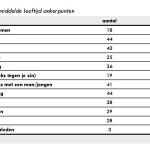T.S. Eliot Reads: The Waste Land
Roz Kaveney – TS Eliot’s The Waste Land: the radical text of a wounded culture
Siegfried Sassoon once wrote a poem complaining about a concert whose audience listened to The Rite of Spring as if it were “by someone dead / like Brahms”, instead of rioting and yelling abuse. Indeed, most of the great works of 20th-century modernism have become part of the canon. People may still occasionally make disobliging remarks about Picasso, say, but we are used to TS Eliot’s The Waste Land – it is assimilated, and no longer regarded as an awful warning of the debased, degenerate way in which things are heading.
Read more: http://www.theguardian.com/waste-land
BBC Documentary – Slums of India
An amazing documentary on the reality of the slums of India. BBC documentary.
TEDCity2.0 (English)
TEDCity2.0 is a daylong event to surface stories of urban ingenuity and interdependence from across the globe, featuring an unexpected mix of over 20 speakers, including several 2012 City 2.0 Award winners. Coinciding with the TEDCity2.0 anchor event, TEDx communities worldwide will envision the cities of our future and share big ideas about collaborative action and sustainable solutions.
See more: http://new.livestream.com/tedx/cityenglish/videos
Conférence De Antonio Meloto – “L’urbanisation Du Monde” (Anglais)
Le Forum des Nouveaux Mondes de France Business School, en partenariat avec le Figaro.fr Etudiant,
Interview de Antonio Meloto, le 26 septembre 2013, dont le thème de la conférence est “L’urbanisation du monde” (anglais)
#NewWorld #FranceBS
Slum Stories: Kenya – Going To The Toilet In A Slum
This video is part of the Amnesty International www.SlumStories.org project. An online videochannel about the life in slums in different parts of the world.
All videos can be watched with English, Arab, French, Spanish, German and Dutch subtitles.
You Deserve To Know
Film was shot in 2009 in Kibera, one of the biggest African slums. The story unveils the positive side of the slum, showing the power of information and people’s grassroots initiatives. Six social initiatives of local innovators, are trying to change the face of their dwelling place. Those engaged with the projects work and live in Kibera and might be described as humble leaders in this one million-people society. Their only resources are ingenuity, talent and engagement.


